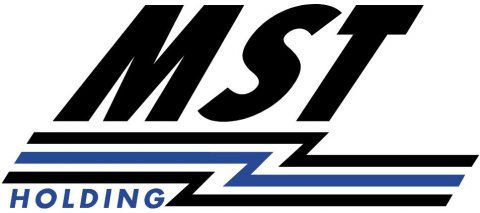In the heating, ventilation, and air conditioning (HVAC) industry, technical support plays a crucial role in ensuring that customers receive quality service and effective solutions to their needs. A key aspect of HVAC technical support is the call center, which serves as the initial point of contact for customers requiring assistance or technical advice. Below, we present an interesting interview with a Customer Service – Technical Assistance Supervisor from MST, who has extensive experience in the sector and explains how they manage an HVAC technical support service.
1 – How long have you been managing HVAC technical services? I have been managing customer services in the HVAC sector for a total of 9 years. This has allowed me to witness the evolution of the sector and its services.
2 – What types of calls are being received? We receive all types of calls, ranging from inquiries about basic product information to reports of malfunctions, which constitute the majority. We have a specialized team of technical agents with advanced knowledge in air conditioning and boiler products, providing top-level technical support for troubleshooting calls. The aim is to solve issues over the phone during the first call to avoid the need for a technician’s on-site visit. Our goal is to reduce the time our customers are without services and prevent unnecessary costs for them. Without this initial technical support level, we would incur expenses related to travel and a technician’s physical presence.
Additionally, during these calls, we take the opportunity to offer maintenance contracts.
We also manage the sales of maintenance contracts, with sales ratios reaching around 41%. We handle backoffice services, including activation requests received via email, registration of maintenance contracts, managing voicemail, and handling emails from the installers themselves.
3 – What service channels are used in your services? Currently, we receive requests via telephone, email, and voicemail. Furthermore, we also attend to web forms submitted through the client’s website. We provide a multichannel service where delivering the same quality of service regardless of the contact channel is paramount.
4 – How are malfunctions resolved, and how are on-site technician visits avoided? For all malfunction reports we receive, we perform a First Contact Resolution (FCR) using the Wiki documents, which is a knowledge database created by MST and accessible to the entire team. This content management system contains all operation manuals, spare parts, technical schematics, and explanatory videos for all products currently available in the market. Based on this information, our technical agents can resolve many of the issues. As a result, we address the incidents during the first contact, and there is no need to open a service report for an on-site visit by a technician. This minimizes the time required to resolve the issue and enhances customer satisfaction.
5 – So, as you explained, avoiding on-site visits benefits both the company and the customers. Do you undertake any other actions that offer more business opportunities? Yes, for cases where the customer doesn’t have a maintenance contract, we take advantage of the call to remind them about the benefits of having one, such as extending the lifespan of their appliance and achieving savings in energy consumption, among others. We always offer this option to customers who don’t have a contract, providing added value to our customers and a satisfying buying experience.
We present them with the best maintenance solutions while providing general information and trying to capture their attention to generate more business.
Another action we take is filling the available slots in the technicians’ schedules based on their service area by scheduling maintenance visits for contract holders. This way, we optimize their schedules during periods of low demand.
6 – In your 9 years of experience, how has the heating and boiler sector changed? HVAC services have evolved significantly in recent years and, as I mentioned before, they have also transformed into Profit Centers rather than Cost Centers, which they used to be as a Post-Sales Service. Nowadays, it’s necessary to possess commercial skills in addition to technical knowledge to provide greater added value and the best customer experience. These services aim to foster customer loyalty, not just solve their doubts and/or malfunctions, making them aware of the importance of regularly maintaining their boiler to extend its lifespan. Moreover, having an OFFICIAL maintenance contract ensures cost reductions during a technician’s visit, use of ORIGINAL brand spare parts, qualified personnel who specialize in the product (since we do not handle other manufacturers), and payment flexibility, allowing customers to pay the annual fee in monthly installments.
7 – How do you prepare for the winter service? How do you manage the increase in call volume? With so many years in the industry, I’ve been here for 9 years, but MST has been providing services like this for 30 years, so we have a deep understanding of the market and its behavior. This allows us to anticipate the increased demand for services. Flexibility is one of our strengths. We follow a predefined protocol for managing the seasonal changes in the HVAC sector.
We know that the increase in service requests comes suddenly because the cold weather doesn’t announce its arrival. However, by planning in advance and selecting and training a reinforcement team, we are able to quickly deploy a team so that no customer is left without receiving service at a high level of quality.

